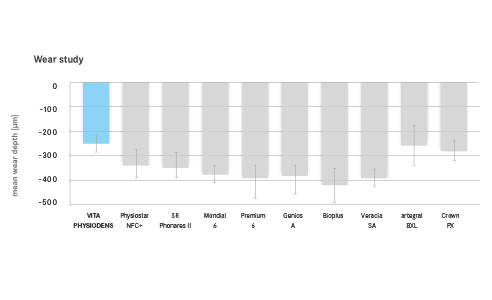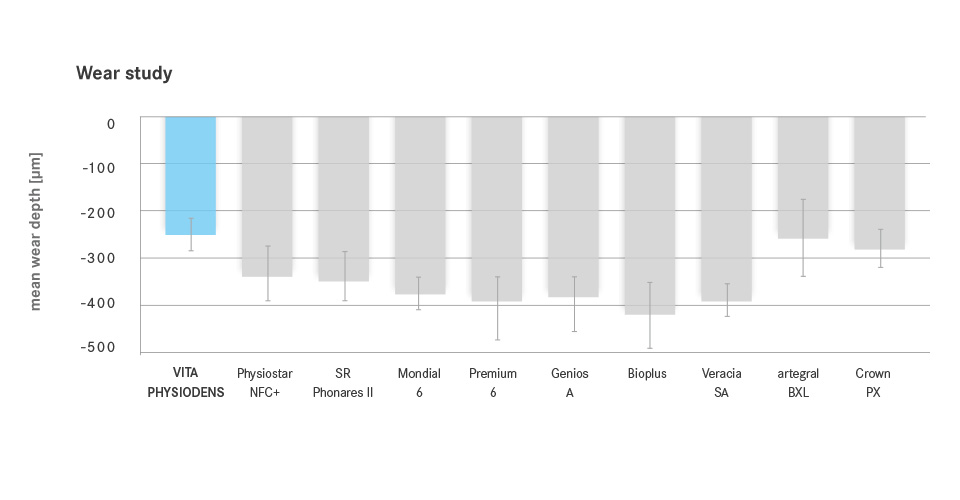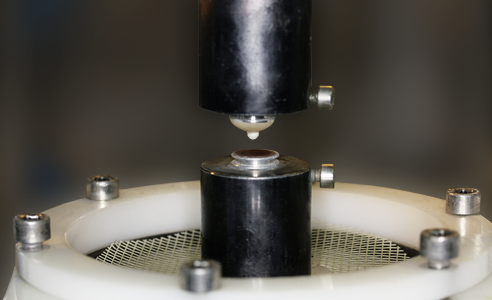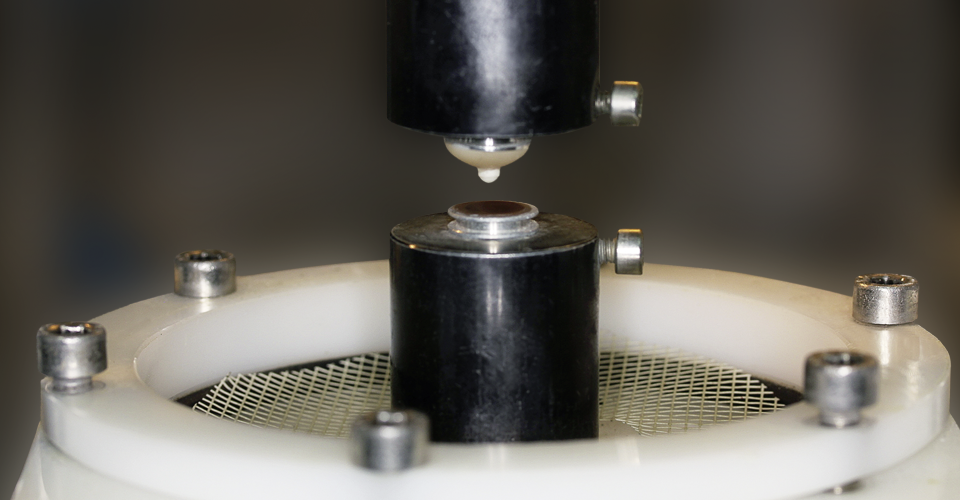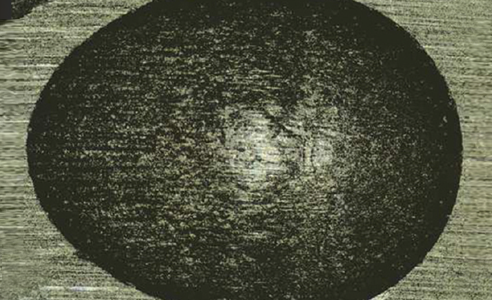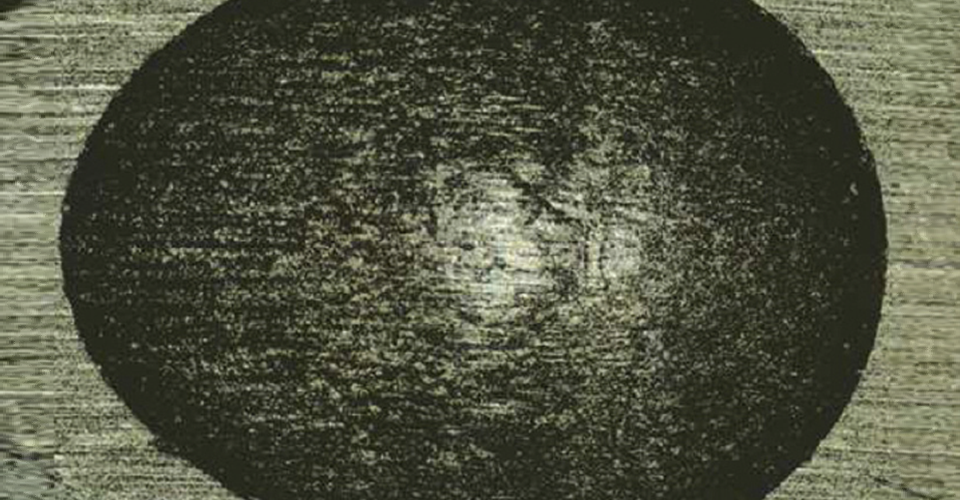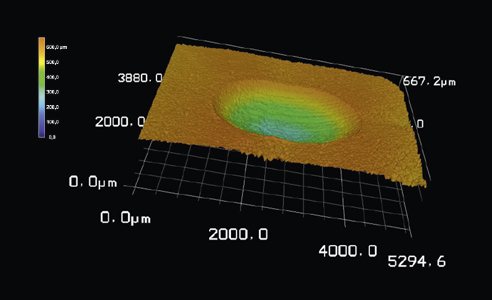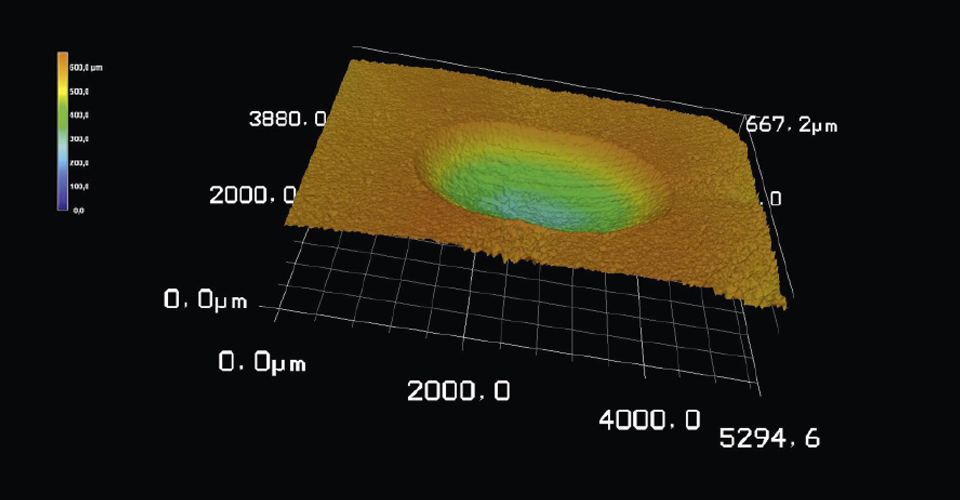Denture materials tested: High durability for MRP composite!
The abrasion resistance of the denture teeth has a significant influence on the functional and esthetic long-term success of the prosthetic restoration. Increased material removal is always accompanied by a lowering of the bite, which adversely affects all anatomical structures of the stomatognathic system and can lead to esthetic deficits. In the following interview, Prof. Dr. Martin Rosentritt (Regensburg University Hospital, Germany) reports on in-vitro testing of the wear resistance of ready-to-use teeth and his experience with VITA denture teeth made of MRP composite (Microfiller Reinforced Polymer Matrix).
DV: Which denture teeth made of which materials have you investigated?
Dr. M. Rosentritt: We have investigated a total of ten prefabricated products of different manufacturers in relation to their abrasion stability. The denture teeth showed differences due to both the material and the manufacturing method used. Some of the examined prefabricated teeth were made of pure polymer, while other brands showed that only the outer layers contained fillers. Finally there were also denture teeth like the VITA PHYSIODENS, which were made entirely of composite.
DV: What test procedure did you use in your in-vitro study?
Dr. M. Rosentritt: We conducted a pin-on-block (POB) wear test in the chewing simulator on embedded denture teeth. A steatite ball with a force of 50 N and a pulse of 1.2 Hz was passed over the respective prefabricated teeth in 120,000 cycles. To simulate a temperature load alternation between 5 and 55 °C, temperature-controlled distilled water was used to rinse the teeth.
DV: Based on the results, what can we expect regarding the long-term durability of the denture teeth?
Dr. M. Rosentritt: The VITA PHYSIODENS denture teeth of MRP composite showed significantly less wear in the test in comparison to the other tested denture teeth. According to these results, we can expect that VITA prefabricated teeth made of MRP composite provide clinically longer lasting durability.
DV: What explains the good abrasion stability of the VITA prefabricated product in the test?
Dr. M. Rosentritt: Like the majority of the VITA denture teeth, the VITA PHYSIODENS is manufactured from MRP composite material. This is a high molecular weight, highly cross-linked acrylate polymer with silanized and homogeneously incorporated silicon dioxide microfill bodies, which are polymerized into the polymer matrix. This microfiller also strengthens the polymer matrix, which contributes to its good durability. In addition, VITA uses a special process to compact and cure all tooth layers at the same time so that boundary layers penetrate completely.
DV: What should technicians pay attention to during manufacture to ensure durable prosthetics?
Dr. M. Rosentritt: The prosthetic setup should harmonize with the stomatognathic system. In parafunctions, the chewing load is always increased and abrasive processes are increasingly reduced. Chewing surfaces should be polished again after grinding to avoid abrasive surfaces.
Report 07/17
Source Fig. 1: University of Regensburg, Prof. Dr. M. Rosentritt, Test Report No. 280_2, Report 11/15; published in Tech.-Wiss. Dokumentation VITA Prothesenzähne [Technical-Scientific Documentation of VITA Prosthetic Teeth], download via www.vita-zahnfabrik.com/prosthetics



